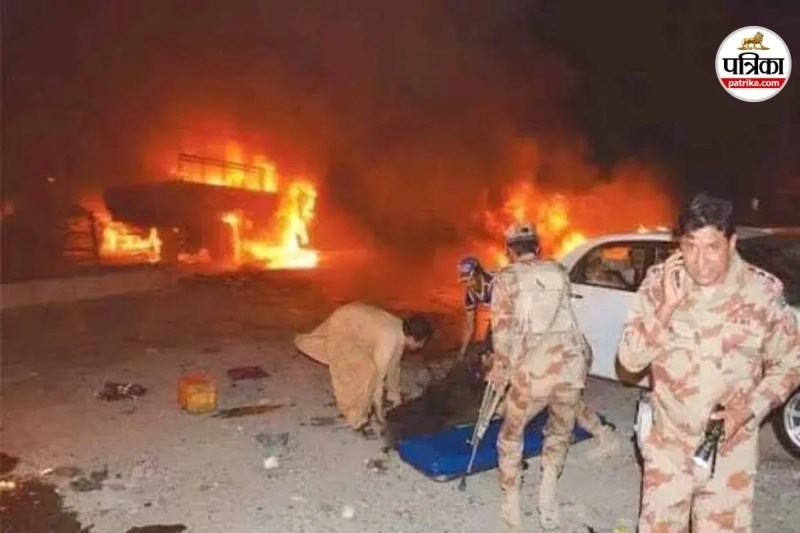
(Image: X Handle Globaly Pop)
Afghanistan Pakistan Conflict: Border tensions between Afghanistan and Pakistan have reached a peak. On Saturday night, Taliban forces attacked Pakistani outposts, believed to be retaliation for Pakistan's recent airstrikes on Kabul. The Taliban's Defence Minister, Mawlawi Mohammad Yaqoob Mujahid, claimed in a press conference on Sunday that 58 Pakistani soldiers were killed and 30 others injured in this operation. Additionally, the Afghan army captured 25 Pakistani outposts. This incident occurred near the Durand Line, where the long-standing animosity between the two countries has flared up again.
Pakistan had carried out airstrikes in Kabul and Paktika province on Thursday, which the Taliban described as a violation of their sovereignty. Two senior members of Tehrik-i-Taliban Pakistan (TTP) were killed in these strikes, but Pakistan did not claim responsibility. The Taliban termed it as 'unprecedented aggression' and launched an immediate counter-offensive.
Meanwhile, in an official statement released on Sunday, Taliban spokesperson Zabihullah Mujahid stated that Afghanistan's borders are completely secure and illegal activities have been stopped. Pakistan's Interior Minister Mohsin Naqvi described these attacks as 'unprovoked' and a violation of international laws.
The Taliban made serious allegations against Pakistan, stating that it is harbouring ISIS members on its soil who are carrying out terrorist activities in Afghanistan and around the world. Mujahid claimed in the press conference that Pakistan, through Karachi and Islamabad airports, sent new ISIS members to training centres in Pashtunkhwa.
Attacks in Tehran, Moscow, and within Afghanistan are planned from these centres. The Taliban demanded that Pakistan either expel the key ISIS members from the country or hand them over to Afghanistan. This accusation further deepens the old dispute over cross-border terrorism, where Pakistan accuses the Taliban of sheltering the TTP.
Amidst this tension, the Taliban cancelled the visit of a Pakistani delegation to Kabul. Mujahid warned that any attack on Afghanistan would not go unanswered. Referring to the Afghan refugees in Waziristan as a 'legacy,' he stated that a specific faction of the Pakistani military is engaged in creating divisions among Afghans and spreading false propaganda. The Taliban appealed that the common citizens of Pakistan and the majority of the army do not support the policies of this faction.
Countries like Iran, Saudi Arabia, and Qatar have appealed to both sides to exercise restraint. Iranian Foreign Minister Abbas Araghchi said that stability between the two neighbours is essential for regional peace. Experts believe that the conflict may not last long due to the Taliban's limited military capacity, but the situation could be complicated by disinformation and border disputes. India has also expressed concern, as this could affect regional security. Washington-based analyst Michael Kugelman called it a 'perfect storm' that could subside soon but requires vigilance.
This conflict has been ongoing since 2024, with 400 Afghan fighters taking control of 15 border posts in the Bajaur district in January 2025. The Taliban claimed to have cleared its land of 'troublemakers.' The question now is whether this retaliation will end or create a new crisis. Afghanistan has appealed for calm but has declared that provocative actions on the border will not be tolerated.
Published on:
12 Oct 2025 04:02 pm
Big News
View AllWorld
Trending

